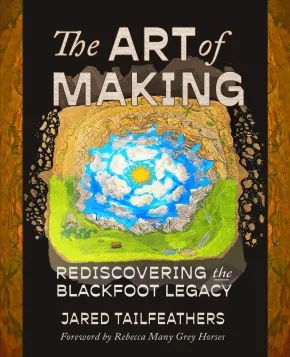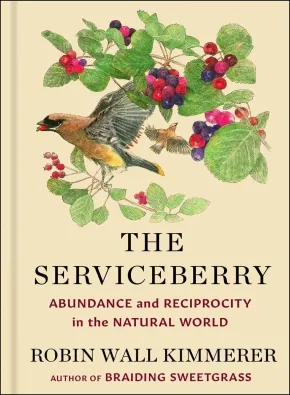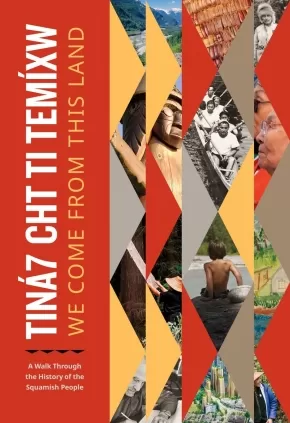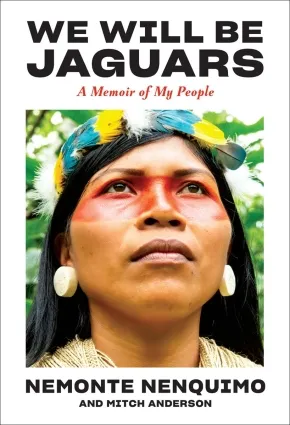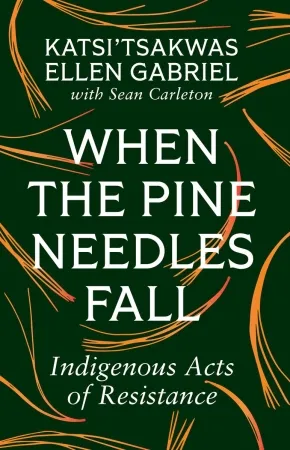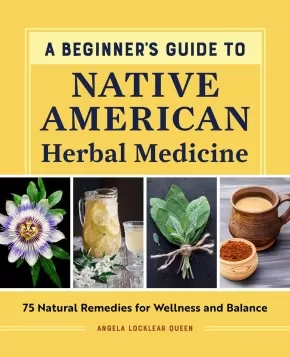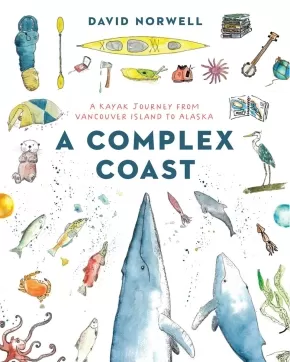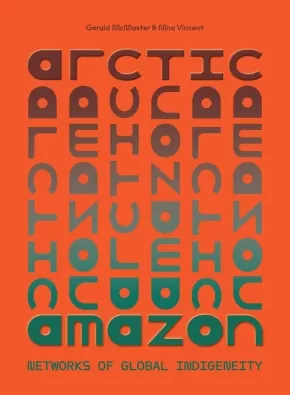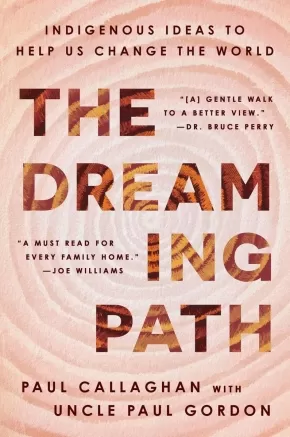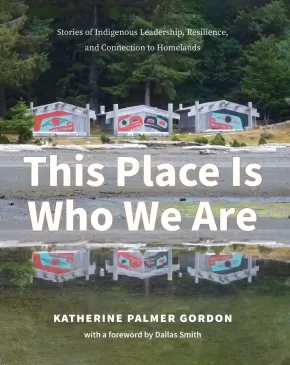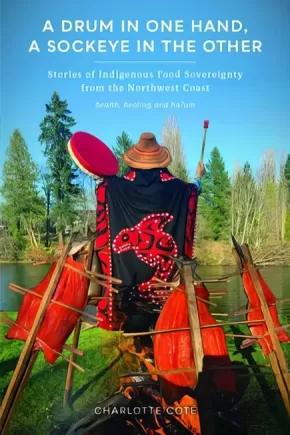
Nature
16
-
30
of
186 Results;
Sort By
Go To
of 13
The Art of Making: Rediscovering the Blackfoot Legacy
$42.50
Format:
Paperback
Reading Level: N/A
ISBN / Barcode: 9781990735547
Synopsis:
Synopsis:
The Art of Making: Rediscovering the Blackfoot Legacy is a captivating entry into Jared Tailfeathers’ quest of cultural reclamation. Accompanied by his family and loyal dogs, Tailfeathers delves into his Indigenous heritage through hands-on, land-based exploration. The book traces the evolution of the Blackfoot Confederacy, examining its trade routes, resources, and interactions pre- and post-1800s. It provides intricate details of Blackfoot connections with nature, neighbouring First Nations Peoples, and their rich legacy in tool-making, spiritual knowledge seeking, and artistic expression. Tailfeathers’ research began in 2019, driven by a deep desire to reacquaint himself with his cultural and historical identity as a Blackfoot man navigating a post-colonial world. This book is a journey into the heart of Blackfoot culture, told by a man who walks the ancestral trails with his dogs.
Educator & Series Information
This book is part of the Indigenous Spirit of Nature series.
Additional Information
208 pages | 7.25" x 9.25" | Colour Illustrations | Paperback
The Deerholme Foraging Cookbook: Wild Ingredients and Recipes from the Pacific Northwest, Revised and Updated
$40.00
Format:
Paperback
Text Content Territories:
Indigenous Canadian; First Nations;
Reading Level: N/A
ISBN / Barcode: 9781771514378
Synopsis:
Synopsis:
A revised and expanded edition of the popular Pacific Northwest foraging cookbook from Deerholme Farm on Vancouver Island.
The Deerholme Foraging Cookbook is an exploration of the wild foods found in the Pacific Northwest. Award-winning chef and author Bill Jones’s recipes feature local mushrooms, edible plants, sea vegetables, and shellfish. The product of over twenty years of research and professional cooking with foraged foods, the book serves as an introduction to the world of wild food and contains identification and sourcing information, harvesting and preparation tips, and more than 100 delicious recipes featuring wild foods. The recipe list includes techniques for preserving food and covers basic pantry preparations, appetizers, soups, salads, and desserts, as well as meat, seafood, and vegetable dishes.
Linking to traditional uses for wild foods and future possibilities for our diet and wellbeing, as well as enhancing our appreciation of the environment around us, The Deerholme Foraging Cookbook is richly enhanced by the author’s photography of wild foods and dishes, and his own foraging stories. The recipes are global in influence and use simple techniques woven together with expert knowledge to create delicious, wholesome homemade food.
Additional Information
304 pages | 7.50" x 9.00" | 2nd Edition
The Serviceberry: Abundance and Reciprocity in the Natural World
$25.00
Format:
Hardcover
Text Content Territories:
Indigenous American;
ISBN / Barcode: 9781668072240
Synopsis:
Synopsis:
From the #1 New York Times bestselling author of Braiding Sweetgrass, a bold and inspiring vision for how to orient our lives around gratitude, reciprocity, and community, based on the lessons of the natural world.
As Indigenous scientist and author of Braiding Sweetgrass Robin Wall Kimmerer harvests serviceberries alongside the birds, she considers the ethic of reciprocity that lies at the heart of the gift economy. How, she asks, can we learn from Indigenous wisdom and the plant world to reimagine what we value most? Our economy is rooted in scarcity, competition, and the hoarding of resources, and we have surrendered our values to a system that actively harms what we love. Meanwhile, the serviceberry’s relationship with the natural world is an embodiment of reciprocity, interconnectedness, and gratitude. The tree distributes its wealth—its abundance of sweet, juicy berries—to meet the needs of its natural community. And this distribution insures its own survival. As Kimmerer explains, “Serviceberries show us another model, one based upon reciprocity, where wealth comes from the quality of your relationships, not from the illusion of self-sufficiency.”
As Elizabeth Gilbert writes, Robin Wall Kimmerer is “a great teacher, and her words are a hymn of love to the world.” The Serviceberry is an antidote to the broken relationships and misguided goals of our times, and a reminder that “hoarding won’t save us, all flourishing is mutual.”
Reviews
“Robin Wall Kimmerer is writer of rare grace. She writes about the natural world from a place of such abundant passion that one can never quite see the world the same way after having seen it through Kimmerer’s eyes. In Braiding Sweetgrass, she takes us on a journey that is every bit as mythic as it is scientific, as sacred as it is historical, as clever as it is wise. She is a great teacher, and her words are a hymn of love to the world.” —Elizabeth Gilbert
“Robin Wall Kimmerer has written an extraordinary book, showing how the factual, objective approach of science can be enriched by the ancient knowledge of the indigenous people. It is the way she captures beauty that I love the most—the images of giant cedars and wild strawberries, a forest in the rain and a meadow of fragrant sweetgrass will stay with you long after you read the last page.” —Jane Goodall
“I give daily thanks for Robin Wall Kimmerer for being a font of endless knowledge, both mental and spiritual.”—Richard Powers, The New York Times
“Robin Wall Kimmerer opens a sense of wonder and humility for the intelligence in all kinds of life we are used to naming and imagining as inanimate.” —Krista Tippett, host of On Being
Additional Information
112 pages | 5.00" x 7.00" | Hardcover
Tiná7 Cht Ti Temíxw: We Come from This Land
$35.00
Format:
Paperback
Text Content Territories:
Indigenous Canadian; First Nations; Salish; Coast Salish; Squamish;
Grade Levels: 12; University/College;
ISBN / Barcode: 9781774583920
Synopsis:
Synopsis:
A story of the Sḵwx̱wú7mesh Úxwumixw (Squamish Nation): past, present, and future.
One hundred years after Sḵwx̱wú7mesh (Squamish) leadership signed an amalgamation agreement that declared several communities in Squamish territory as one nation, this accessible history of the Sḵwx̱wú7mesh people traces our stories from ancient times to the present. Tiná7 Cht Ti Temíxw: We Come from This Land offers the culmination of generations of knowledge about the Squamish People and Sḵwx̱wú7meshulh Temíx̱w (Squamish People’s Territory).
Today, we are over 4,100 people and growing, living within Sḵwx̱wú7meshulh Temíx̱w and beyond. Our 6,732-square-kilometre territory includes the watersheds of the Squamish River, Mamquam River, and Howe Sound in the north, and English Bay, False Creek, and Burrard Inlet in the south. It encompasses saltwater and rushing rivers, old-growth forests at valley bottoms, and alpine forests high above the ocean.
Oral histories and archaeological sites demonstrate our relationship with the lands and waters going back over twelve thousand years. Here, we introduce ancient Squamish stories and ways, as well as describe relationships with our neighbours from time immemorial. We discuss early contact with Europeans and the disastrous effects of racism and colonialism, the Indian Act, reserves, and residential schools. We detail our engagement with the imperfect tool of the Canadian judicial system in several significant court cases that have advanced Indigenous rights. And we show how the Squamish Nation is taking back ownership and stewardship within our homelands.
Tiná7 Cht Ti Temíxw: We Come from This Land is a powerful introduction to our vast history and a launching point for discovering more about the different places, people, and stories offered here.
Additional Information
416 pages | 6.50" x 9.50" | Paperback
We Will Be Jaguars: A Memoir of My People
$35.00
Format:
Hardcover
Text Content Territories:
Indigenous South American; Indigenous Peoples in Ecuador; Waorani ;
Reading Level: N/A
ISBN / Barcode: 9781419763779
Synopsis:
Synopsis:
From a fearless, internationally acclaimed activist comes an impassioned memoir about an indigenous childhood, a clash of cultures, and the fight to save the Amazon rainforest
We Will Be Jaguars is an astonishing memoir by an equally astonishing woman. Nenquimo is a winner of TIME magazine’s Earth Award, and MS. magazine named this book among the Most Anticipated Feminist Books of 2024.
Born into the Waorani tribe of Ecuador’s Amazon rainforest—one of the last to be contacted by missionaries in the 1950s—Nemonte Nenquimo had a singular upbringing.
She was taught about plant medicines, foraging, oral storytelling, and shamanism by her elders. At age fourteen, she left the forest for the first time to study with an evangelical missionary group in the city. Eventually, her ancestors began appearing in her dreams, pleading with her to return and embrace her own culture. She listened.
Two decades later, Nemonte has emerged as one of the most forceful voices in climate change activism. She has spearheaded the alliance of indigenous nations across the Upper Amazon and led her people to a landmark victory against Big Oil, protecting over a half million acres of primary rainforest. Her message is as sharp as a spear—honed by her experiences battling loggers, miners, oil companies and missionaries.
In We Will Be Jaguars, she partners with her husband, Mitch Anderson, founder of Amazon Frontlines, digging into generations of oral history, uprooting centuries of conquest, hacking away at racist notions of indigenous peoples, and ultimately revealing a life story as rich, harsh, and vital as the Amazon rainforest herself.
Reviews
“If you want to understand the climate crisis and do something about it, read this book. Nemonte’s writing is as provocative as it is inspiring, a heroine speaking her truth which is exactly what we need to hear. Had we listened long ago to these voices we wouldn’t be in the eye of the storm now.” — Emma Thompson
“We Will Be Jaguars is the story of the humanity and fierce determination of Nemonte Nenquimo, one of the most effective leaders for Indigenous rights and environmental justice. In her gripping memoir, Nenquimo shares her journey from childhood to warrior leader, fighting the forces of greed and destruction that threaten the Waorani People and their vast, spectacular rainforest. Her story highlights the love and strength required to overcome the forces that threaten our planet.” — Laurene Powell Jobs, founder and president, Emerson Collective
“On one level, Nemonte Nenquimo’s memoir is inspiring, moving, and unforgettable; a rarely seen, firsthand insight into a childhood spent in the Amazon rainforest and the extraordinary story of her fight to save it from oil companies. On another level, this intimate and motivating book should spur action from all of us: the fight to save our planet from exploitation is something that affects us all and is the responsibility of us all. Nenquimo’s leadership and example should shame those of us in industrialized countries into changing the way we live and the way we see our world.” — Rowan Hooper, author of How to Save the World for Just a Trillion Dollars
“Everyone should read this––never has a book been more urgent. Truly soul-stirring, Nemonte’s book is a radical manifesto for our times. It moved me to tears. Her story flows like a mighty river, and I was utterly taken by its current.”— Vanessa Kirby, actress and activist
"Full of wisdom, sadness, flourishes of joy and more than a few psychedelic visions, We Will Not be Saved is testament not only to Nenquimo’s resilience but also her deep spiritual connection to her land and ancestors. ... [It] plant[s] readers right in the heart of the rainforest, immersing them in its sounds, smells and kaleidoscopic landscapes. Many are the memoirs that profess to tell untold stories, but here that claim is watertight." — The Guardian
Additional Information
368 pages | 6.00" x 9.00" | Hardcover
When the Pine Needles Fall: Indigenous Acts of Resistance
$32.95
Format:
Paperback
Text Content Territories:
Indigenous Canadian; First Nations; Haudenosaunee (Iroquois); Kanyen'keha:ka (Mohawk); Kanehsatà:ke; Kahnawà:ke ;
Reading Level: N/A
ISBN / Barcode: 9781771136501
Synopsis:
Synopsis:
There have been many things written about Canada’s violent siege of Kanehsatà:ke and Kahnawà:ke in the summer of 1990, but When the Pine Needles Fall: Indigenous Acts of Resistance is the first book from the perspective of Katsi’tsakwas Ellen Gabriel, who was the Kanien’kehá:ka (Mohawk) spokesperson during the siege. When the Pine Needles Fall, written in a conversational style by Gabriel with historian Sean Carleton, offers an intimate look at Gabriel’s life leading up to the 1990 siege, her experiences as spokesperson for her community, and her work since then as an Indigenous land defender, human rights activist, and feminist leader.
More than just the memoir of an extraordinary individual, When the Pine Needles Fall offers insight into Indigenous language, history, and philosophy, reflections on our relationship with the land, and calls to action against both colonialism and capitalism as we face the climate crisis. Gabriel’s hopes for a decolonial future make clear why protecting Indigenous homelands is vital not only for the survival of Indigenous peoples, but for all who live on this planet.
Awards
- 2025 Canadian Historical Association Indigenous History Book Prize
- 2025 Errol Sharpe Book Prize
- 2025 Wilson Institute Book Prize
Reviews
“When the Pine Needles Fall is a profound treatise and manifesto chronicling Haudenosaunee resistance to land theft by one of the most important Land Defenders of our time. Gabriel’s work is the book on Indigenous resistance I’ve been waiting for my whole life. It is a must-read for anyone concerned with the continuation of life on this planet.” — Leanne Betasamosake Simpson, co-author of “Rehearsals for Living”
“Katsi’tsakwas Ellen Gabriel’s words in When the Pine Needles Fall are gifts that serve as a beacon of light by igniting our hearts, minds, and spirits. Through her boundless wisdom grounded in healing work as a Land Defender on Turtle Island, she calls for fierce Indigenous resistance and radical global solidarity to put an end to root causes of oppression worldwide: capitalism, patriarchy, and settler colonialism. Gabriel reminds us that a more just, kind, and caring world—where all life is precious—is possible for the next seven generations, but only if we fight for it.” — Samir Shaheen-Hussain, MD, author of “Fighting for A Hand to Hold: Confronting Medical Colonialism against Indigenous Children in Canada”
“When the Pine Needles Fall is a remarkable and revelatory account of the 1990 siege of Kanehsatà:ke and Kahnawà:ke, when provincial, municipal, and national armed forces targeted these Mohawk communities. It is also one of the best first-hand accounts of Indigenous activism that I have ever read, relayed in moving and extraordinary form. An essential addition to contemporary First Nations history and the growing field of Indigenous Studies.” — Ned Blackhawk, Western Shoshone, author of “The Rediscovery of America: Native Peoples and the Unmaking of U.S. History”
“As a treatise on women and culture-based governance from a remarkable Haudenosaunee leader, When the Pine Needles Fall offers me hope and renewed energy. Through her life work, Ellen Gabriel demonstrates how to persevere, remain optimistic, and continue with creative and activist endeavours. The book effectively situates the ‘crisis’ within its centuries-long context, marking a tipping point for Canada while highlighting ongoing challenges. It also examines how mainstream narratives are constructed around Indigenous struggles, providing a comprehensive profile of Gabriel’s diverse contributions to Indigenous resistance and resurgence.” — Kim Anderson, author of“ Life Stages and Native Women: Memory, Teachings, and Story Medicine”
“Katsi’tsakwas Ellen Gabriel’s personal account of the 1990 siege of Kanehsatà:ke and Kahnawà:ke is a crucial contribution to our understanding of these dramatic events and of the political context of the time. Her lifetime dedication to the defence of Indigenous peoples and women’s rights is truly exemplary and constitutes an inspiration for generations to come.” — Bernard Duhaime, professor, Faculty of Political Science and Law, Université du Québec à Montréal
“In When the Pine Needles Fall, celebrated activist Katsi’tsakwas Ellen Gabriel gifts us with an expansive account of the 1990 siege of Kanehsatà:ke and Kahnawà:ke. This alone provides a captivating analysis of this seminal moment and its legacy within larger movements for Indigenous sovereignty on Turtle Island. But Gabriel, an artist, also paints the negative space, braiding her relationship to the land, Kanien’kehá:ka teachings, and the language with her tireless work against settler colonialism, extractive capitalism, and patriarchy. This essential book is an inspiring conversation reminding us that decolonization is world-building rooted in an ethics of relationality and care.” — Nazila Bettache, MD, MPH; assistant professor of medicine, Université de Montréal; social justice organizer and co-editor of “Reflections on Illness”
“I honour my sister whose words speak the truth. One of the most powerful quotes by Katsi’tsakwas is: ‘I’m a Kanien’kehá:ka woman who cares deeply about our land and I want a better future for the generations to come.’ Everything she speaks about in this book is directly connected to these words.” — Beverley Jacobs, CM, LLB, LLM, PhD; Kanien’kehá:ka, Bear Clan, Six Nations Grand River Territory; associate professor, Faculty of Law, University of Windsor
Additional Information
280 pages | 5.50" x 8.50" | Paperback
A Beginner's Guide to Native American Herbal Medicine: 75 Natural Remedies for Wellness and Balance
$25.99
Format:
Paperback
Text Content Territories:
Indigenous American; Native American;
Reading Level: N/A
ISBN / Barcode: 9798886501278
Synopsis:
Synopsis:
Improve your well-being with Native American herbal medicine
Native American herbal medicine offers a powerful way to connect with the earth and heal naturally—and with this handbook of Native American herbs, you can learn all about herb uses and their restorative effects. Written by an Indigenous herbalist, this guide shows you how to responsibly use traditional plants to treat anxiety, colds, inflammation, and more.
This standout among books about herbs and healing will help you:
- Learn about a time-honored practice—Discover the origins and healing secrets of Native American herbalism, its traditional and modern uses, and how tools like the medicine wheel teach us about our relationship with the natural world.
- Identify the essential herbs—Explore the healing properties of medicinal herbs for wellness, from anise hyssop to yerba santa.
- Make 75 natural remedies—Ease physical and emotional ailments with Native American remedies, like Memory Support Tea, Stress-Induced Headache Tincture, and Antibacterial Healing Herb Liniment.
Tap into traditional wisdom with this Native American herbal medicine book for health and well-being.
Reviews
"A beautiful jumping-off point for anyone who is interested in practical herbalism. Angela organizes the wisdom of Native American herbalism in a way that is accessible for anyone to pick up and fold into their everyday life." —Kathleen Lee, acupuncturist, herbalist, and spiritual business mentor
"Angela is a wise and fierce protector of plant medicine and traditions of healing. Her first book, A Beginner's Guide to Native American Herbal Medicine, is a meaningful, accessible resource for readers who seek to ground themselves in understanding and build an herbal practice of integrity." —Graham Wesley
Additional Information
165 pages | 7.50" x 9.25" | full-colour photographs throughout | Paperback
A Complex Coast: A Kayak Journey from Vancouver Island to Alaska (1 in stock, in Reprint)
$29.95
Format:
Paperback
Reading Level: N/A
ISBN / Barcode: 9781772034493
Synopsis:
Synopsis:
A soul-searching personal account of a young man’s 1,700-kilometre kayak journey from Victoria, BC, to Gustavas, Alaska, illustrated with whimsical watercolour maps and illustrations of local flora, fauna, and landscapes.
In 2014, twenty-four-year-old geography student David Norwell set off on a daunting kayak journey in search of purpose in his life. A jigsaw puzzle of jagged mainland and over 50,000 islands—stretching from southern Vancouver Island to Alaska—lay in front of him. A self-described ordinary kid from small-to-medium-town, British Columbia, David had paddled through the Gulf Islands and guided youth groups on a nine-day journey from Nanaimo to Victoria. But nothing could prepare him for this.
For the next several months, David navigated the waters off the coastal British Columbia, recording his observations, musings, and daily activities in a notebook. The result is this one-of-a-kind travelogue, filled with more than 700 whimsical watercolour illustrations of coastlines, local plant and animal species, camping supplies, and portraits of people he met along the way. He wrote about the nature of solitude, the search for meaning and adventure, the wildlife he encountered, the survival skills he acquired, and the existence of his own privilege. A Complex Coast is an unforgettable coming-of-age story that will appeal to kayakers, naturalists, and anyone looking for adventure.
Additional Information
224 pages | 8.00" x 10.00" | Paperback
A Field Guide to Trees of Ontario
$29.99
Format:
Paperback
Reading Level: N/A
ISBN / Barcode: 9780888545299
Synopsis:
Synopsis:
A comprehensive guide to Ontario trees.
From the cherry blossoms ushering in spring to the maple leaves changing colours for fall, our local trees are beloved markers for the changing seasons. A Field Guide to Trees of Ontario is a portal to the hundreds of trees species found in Ontario, published by the Royal Ontario Museum.
Featuring more than 1,400 vibrant photographs and illustrations, this visually rich and inviting field guide describes the trees likely to be encountered in Ontario, whether on a hike in the woods or on a walk down city streets.
Covering both naturally occurring and cultivated species, this book features an illustrated glossary of botanical terms, distribution maps, and photographs depicting distinctive characteristics of individual tree species.
With diagnostic descriptions for quick recognition of trees by their component parts, and easy-to-use identification keys covering summer and winter conditions, A Field Guide to Trees of Ontario is a must-have for tree enthusiasts--novices and experts alike.
Carry it with you wherever you may find trees, which is practically everywhere.
Additional Information
512 pages | 4.50" x 8.00" | Paperback
Arctic/Amazon: Networks of Global Indigeneity
$60.00
Editors:
Format:
Hardcover
Text Content Territories:
Indigenous Canadian; Indigenous South American;
Grade Levels: 12; University/College;
ISBN / Barcode: 9781773102993
Synopsis:
Synopsis:
Arctic/Amazon: Networks of Global Indigeneity offers a conversation between Indigenous Peoples of two regions in this time of political and environmental upheaval. Both regions are environmentally sensitive areas that have become hot spots in the debates circling around climate change and have long been contact zones between Indigenous Peoples and outsiders — zones of meeting and clashing, of contradictions and entanglement.
Opening with an Epistolary Exchange between the editors, Arctic/Amazon then widens to include essays by 12 Indigenous artists, curators, and knowledge-keepers about the integration of spirituality, ancestral respect, traditional knowledges, and political critique in artistic practice and more than 100 image reproductions and installation shots. The result is an extraordinary conversation about life, artistic practise, and geopolitical realities faced by Indigenous peoples in regions at risk.
Additional Information
256 pages | 8.87" x 12.12" | Hardcover
Held by the Land: A Guide to Indigenous Plants for Wellness
$32.99
Format:
Hardcover
Text Content Territories:
Indigenous Canadian; First Nations; Salish; Coast Salish; Squamish;
ISBN / Barcode: 9781577152941
Synopsis:
Synopsis:
Author Leigh Joseph, an ethnobotanist and a member of the Squamish Nation, provides a beautifully illustrated essential introduction to Indigenous plant knowledge.
Plants can be a great source of healing as well as nourishment, and the practice of growing and harvesting from trees, flowering herbs, and other plants is a powerful way to become more connected to the land. The Indigenous Peoples of North America have long traditions of using native plants as medicine as well as for food. Held by the Land honors and shares some of these traditions, offering a guide to:
- Harvesting herbs and other plants and using them topically
- North American plants that can treat common ailments, add nutrition to your diet, become part of your beauty regime, and more
- Stories and traditions about native plants from the author's Squamish culture
- Using plant knowledge to strengthen your connection to the land you live on
Early chapters will introduce you to responsible ways to identify and harvest plants in your area and teach you how to grow a deeper connection with the land you live on through plants. In the plant profiles section, common plants are introduced with illustrations and information on their characteristics, range, how to grow and/or harvest them, and how to use them topically and as food. Special features offer recipes for food and beauty products along with stories and traditions around the plants.
This beautiful, full-color guide to Indigenous plants will give you new insights into the power of everyday plants.
Additional Informaiton
192 pages | 8.00" x 9.25" | Hardcover
The Dreaming Path: Indigenous Ideas to Help Us Change the World
$34.99
Format:
Hardcover
Text Content Territories:
Indigenous Australian; Worimi;
Reading Level: N/A
ISBN / Barcode: 9780063321267
Synopsis:
Synopsis:
Drawing on ancient Aboriginal wisdom, a leading Indigenous Australian healer and an Elder show you how to find contentment, purpose, and healing by learning to reconnect with your story—and ultimately the universe.
Dr. Paul Callaghan belongs to the land of the Worimi people who live north of Sydney along the east coast of Australia. Raised to live the western way, Paul found himself mired in deep depression—struggling to find meaning while raising a family and working as a senior education executive. Desperate to break free of his restlessness, he made a drastic change: He “went bush” and connected with his elders to “walk Country” and learn Aboriginal traditions. Twenty years later, Paul is an expert healer and spiritual guide eager to share the wisdom of his ancestors and the insights he discovered on his life journey.
In this affirming, empowering, and transformative book, he teaches you about the Dreaming Path—a connection to the earth and the universe, past, present, and future that has always been there, but can be difficult to find amid the chaos of the modern world.
The Dreaming Path offers tips, practices, inspiration, and motivation that can enable you to achieve a profound state of mind, body, and spirit wellness, while encouraging you to think deeply about essential life topics, including:
- Caring for our place and the importance of story
- Relationships, sharing, and unity
- Love, gratitude, and humility
- Learning and living your truth
- Inspiration and resilience
- Being present and healing from the past
- Contentment
- Leading
The Dreaming Path reminds us that we are our stories; by learning to recognize that we are all an indelible part of something much larger, we can begin to heal ourselves and our communities.
Additional Information
320 pages | 6.00" x 9.00" | Hardcover
The Sacred Medicine Oracle: A 56-Card Deck and Guidebook
$35.99
Artists:
Text Content Territories:
Indigenous Canadian; First Nations; Anishinaabeg;
Reading Level: N/A
ISBN / Barcode: 9781401966782
Synopsis:
Synopsis:
Connect with healing traditions, stories, ancestral wisdom, and animal guidance through this 56-card deck and guidebook from Indigenous Medicine Woman and author of You Are the Medicine, Asha Frost.
Indigenous people know the power of earth and spirit medicine. Everything in our natural world is interconnected and sacred. The plants, animals, rocks, waters, stars, moon are our relations, our kin. Every aspect of creation has a spirit. This spirit lives in all things and informs us how to walk in a good way or, in Anishinaabemowin, Mino-bimaadiziwin.
The Sacred Medicine Oracle was birthed to invite readers into a conscious and respectful relationship with medicine teachings, awakening a daily connection to your own inner divinity, power, and wisdom. From the powerful remembering of "Past Life Medicine" to the promise of miracles with "Jingle Dress," each of the 56 cards depicts ceremony, traditions, moon phases, animal guides, and plant allies, all of them alive with energy and blessed with healing intentions from the ancestors.
Additional Information
144 pages | 4.88" x 5.38" | 56 Cards and Guidebook
This Place Is Who We Are: Stories of Indigenous Leadership, Resilience, and Connection to Homelands
$39.95
Format:
Paperback
Text Content Territories:
Indigenous Canadian; First Nations; Kwakwaka'wakw (Kwakiutl); Ligwilda'wx (Laich-kwil-tach); Wei Wai Kai Nation; Dzwada’enuxw; Haida; Nuxalk (Bella Coola);
Reading Level: N/A
ISBN / Barcode: 9781990776137
Synopsis:
Synopsis:
This Place Is Who We Are profiles Indigenous communities in central and northern coastal BC that are reconnecting to their lands and waters—and growing and thriving through this reconnection.
Indigenous peoples and cultures are integrally connected to the land. Well-being in every sense—physical, social, environmental, economic, spiritual and cultural—depends on that relationship, which is based on a fundamental concept: when the land is well, so are the people.
With increasing strength, Indigenous peoples in this vast region of BC—which spans the homelands of more than two dozen First Nations and one of the largest remaining coastal temperate rainforests in the world—are restoring what has been lost through environmental depredation and healing what has been devastated by colonization.
This volume is a collection of ten of these inspiring stories. X̱aayda voices explain how their Rediscovery camps are healing and empowering their youth; Dzawada̱’enuxw Hereditary Chief Maxwiyalidizi K’odi Nelson shares the story of building a healing centre and ecolodge; Wei Wai Kum Chief Christopher Roberts describes the challenges and opportunities for an urban First Nation looking to prosper while protecting the environment and ancient Ligʷiłdaxʷ history and living cultural values; and many more Indigenous leaders share their own experiences of growth, strength and reconnection.
Thoughtful and inspiring, This Place Is Who We Are illustrates what can be accomplished when conservation and stewardship are inextricably intertwined with the prosperity and well-being of communities.
Reviews
“Katherine Palmer Gordon, a consummate listener, weaves a powerful tapestry of ten First Nations people, deeply grounded in land, memory and story. Their lives honour the inextinguishable inter-connectedness of humans and nature, in righteous defiance of colonization. These are stories that point to an optimistic future based on the teachings of Ancestors and Elders with a view to making the world better for children, grandchildren and children yet to come. To do this, human wellbeing and land protection must be inseparable. This book is an encounter with wonderful people doing wonderful things. This Place is Who We Are is an invitation to hope for a better society, a better world, featuring ten people creating it. I thank the contributors and Katherine Palmer Gordon for engaging in a visionary conversation.” — Shelagh Rogers, O.C. Host/Producer of The Next Chapter, CBC Radio One, Honorary Witness, Trut
“A beautiful collection of stories and lived experiences! Each with gentle and loving reminders of our sacred connections to each other, the land and water and all living beings. Individually, these stories are inspiring, hopeful and thought provoking. As a collection, majestically woven together by Katherine Palmer Gordon, they have the potential to change hearts and minds of readers, decision makers and future generations.” — Monique Gray Smith
“An astute facilitator of Indigenous governmental relationships and reconciliation, Katherine Palmer Gordon is also an award-winning writer, and a very good listener who earns trust. These deeply personal accounts of Indigenous cultural rediscovery, empowerment—and healing in a post-colonial world—are truly inspiring. Steeped in ancient connections with the land, the shared wisdom and vision of elders, youth and community leaders offer timely lessons for a healthier, more respectful relationship between people, wildlife and our planet. This is good medicine for all.” — Mark Forsythe, Co-author of The Trail of 1858: British Columbia's Gold Rush Past and former C
“Katherine Palmer Gordon, a consummate listener, weaves a powerful tapestry of ten First Nations people, deeply grounded in land, memory and story. Their lives honour the inextinguishable inter-connectedness of humans and nature, in righteous defiance of colonization. These are stories that point to an optimistic future based on the teachings of Ancestors and Elders with a view to making the world better for children, grandchildren and children yet to come. To do this, human wellbeing and land protection must be inseparable. This book is an encounter with wonderful people doing wonderful things. This Place is Who We Are is an invitation to hope for a better society, a better world, featuring ten people creating it. I thank the contributors and Katherine Palmer Gordon for engaging in a visionary conversation.” — Shelagh Rogers, O.C. Host/Producer of The Next Chapter, CBC Radio One, Honorary Witness, Trut
“A beautiful collection of stories and lived experiences! Each with gentle and loving reminders of our sacred connections to each other, the land and water and all living beings. Individually, these stories are inspiring, hopeful and thought provoking. As a collection, majestically woven together by Katherine Palmer Gordon, they have the potential to change hearts and minds of readers, decision makers and future generations.” — Monique Gray Smith
“An astute facilitator of Indigenous governmental relationships and reconciliation, Katherine Palmer Gordon is also an award-winning writer, and a very good listener who earns trust. These deeply personal accounts of Indigenous cultural rediscovery, empowerment—and healing in a post-colonial world—are truly inspiring. Steeped in ancient connections with the land, the shared wisdom and vision of elders, youth and community leaders offer timely lessons for a healthier, more respectful relationship between people, wildlife and our planet. This is good medicine for all.” — Mark Forsythe, Co-author of The Trail of 1858: British Columbia's Gold Rush Past and former C
Additional Information
256 pages | 8.00" x 10.00" | Paperback
256 pages | 8.00" x 10.00" | Paperback
A Drum in One Hand, a Sockeye in the Other: Stories of Indigenous Food Sovereignty from the Northwest Coast
$41.00
Format:
Paperback
Text Content Territories:
Indigenous Canadian; First Nations; Nuu-chah-nulth (Nootka); Tseshaht First Nation;
Grade Levels: 12; University/College;
ISBN / Barcode: 9780295749525
Synopsis:
Synopsis:
In the dense rainforest of the west coast of Vancouver Island, the Somass River (c̓uumaʕas) brings sockeye salmon (miʕaat) into the Nuu-chah-nulth community of Tseshaht. C̓uumaʕas and miʕaat are central to the sacred food practices that have been a crucial part of the Indigenous community’s efforts to enact food sovereignty, decolonize their diet, and preserve their ancestral knowledge.
In A Drum in One Hand, a Sockeye in the Other, Charlotte Coté shares contemporary Nuu-chah-nulth practices of traditional food revitalization in the context of broader efforts to re-Indigenize contemporary diets on the Northwest Coast. Coté offers evocative stories of her Tseshaht community’s and her own work to revitalize relationships to haʔum (traditional food) as a way to nurture health and wellness. As Indigenous peoples continue to face food insecurity due to ongoing inequality, environmental degradation, and the Westernization of traditional diets, Coté foregrounds healing and cultural sustenance via everyday enactments of food sovereignty: berry picking, salmon fishing, and building a community garden on reclaimed residential school grounds. This book is for everyone concerned about the major role food plays in physical, emotional, and spiritual wellness.
Reviews
"A powerful philosophy of food sovereignty. Coté successfully navigates myriad scholarly and nonscholarly voices, telling a compelling comprehensive story that helps us understand the practices and policies needed to make change in our food systems." — Kyle Whyte, Michigan State University
"Adeptly uses a deep storytelling method, including both lived experience and critical analysis of history and theory, to examine experiences and transformations of Indigenous foodways." — Hannah Wittman, University of British Columbia
"I am so grateful for Charlotte Cote’s A Drum in One Hand, a Sockeye in the Other, which creates a path into the living foodways and thoughtways of her people. Her warm, storytelling voice and sharing of collective knowledge embody the generous spirit of a feast, and this book itself, is a feast." — Robin Wall Kimmerer (Potawatomi), SUNY Environmental Science and Forestry
Additional Information
208 pages | 6.00" x 9.00" | 17 b&w illustrations | 2 maps | Paperback
Sort By
Go To
of 13

